Walking on Alumni Avenue at the University of Macau (UM), one can see colour-coded buildings on both sides. The buildings with blue roofs are faculty buildings, while those with walls in hues of orange are residential colleges (RC). During peak hours, the avenue is bustling with students rushing to classrooms for lessons or returning to RCs to have meals, rest, or study. At UM, the RCs are not only a place of accommodation, but also a platform for community and peer education and knowledge integration.
Exploring Residential College Education
College-based education systems can be found in the history of both China and Western countries, from the Bailudong Academy in the Song dynasty to colleges of the University of Oxford and the University of Cambridge in the 13th century, and they provide valuable experience for the implementation of modern college systems. Blessed with a unique historical background and advantageous geographical location, Macao became a centre for exchanges between Chinese and Western civilisations. UM, as a university rooted in the city, has inherited the Chinese tradition and has introduced elements of Western educational systems into its education layout, and the RC system is an important component.1
UM has developed its RC system for more than ten years, starting with the establishment of two RCs in 2010, namely Pearl Jubilee College (now known as Henry Fok Pearl Jubilee College) and East Asia College (now known as Stanley Ho East Asia College). Over the years, the RC system has evolved from a trial project to an integral part of the university’s ‘4-in-1’ education model, which consists of discipline-specific education, general education, research and internship education, and community and peer education.
Providing a Stimulating Environment for Students
One of the features of UM’s education setup is the integrated education system in which faculties and RCs achieve synergy by complementing each other. Serving as a platform for community and peer education and knowledge integration, the RCs help undergraduate students achieve development through experiential learning outside the classroom. ‘We are committed to providing a stimulating environment and adopting an experiential learning approach, with the goal of cultivating well-rounded students equipped with intellectual and moral capabilities. After ten years of development, the RC system has evolved into a distinctive model for talent cultivation at UM,’ says Mok Kai Meng, vice rector (student affairs).
Prof Mok is an expert in civil engineering with nearly 30 years of education experience at UM, where he served as dean of the Faculty of Science and Technology and founding dean of the Honours College. Since 2017, he has been the interim college master of Henry Fok Pearl Jubilee College, a position he continues to hold today even after assuming the role of vice rector in 2022. Over the past year, he made frequent visits to the ten RCs to meet with college masters, associate college masters, college fellows, and students to listen to their suggestions on how to improve the RC system, hoping to more effectively promote the holistic development of students.
Accommodating students from all over the world, the RCs strive to create a home-like atmosphere in a multicultural environment, where students can achieve personal growth with guidance from their colleges and peers throughout their university life, a momentous stage of their development. Graduates who have lived and studied in the RCs over the years have come to appreciate the college environment that is conducive to whole-person education. ‘The RCs not only cultivate practical skills in students, but also instil in them good moral character, team spirit, respect for others, and a positive attitude towards learning. These soft skills can benefit students greatly throughout their lives,’ says Prof Mok.
Improving the RC System to Achieve Educational Goals
Following UM’s relocation to its current campus on Hengqin Island in 2014, Pearl Jubilee College and East Asia College were renamed Henry Fok Pearl Jubilee College and Stanley Ho East Asia College, respectively. Since then, UM has also established eight new RCs, namely Chao Kuang Piu College, Cheng Yu Tung College, Cheong Kun Lun College, Choi Kai Yau College, Lui Che Woo College, Ma Man Kei and Lo Pak Sam College, Moon Chun Memorial College, and Shiu Pong College. The establishment of the ten RCs signified the full implementation of the RC system, which not only offers students a full range of experiential learning opportunities, but also defines the competencies that students need to develop through community and peer education.
Serving as an important vehicle for community and peer education and an integrated learning platform at UM, the RCs provide effective guidance and full support for students to achieve success in the other three aspects of whole-person education, namely discipline-specific education, general education, and research and internship education. More importantly, the RCs work in synergy with the faculties to create an environment conducive to multidisciplinary and multicultural interchange, as well as collaborative learning.
In 2019, the RC system began a phase of development and enhancement based on previous experience, and defined new educational goals by encapsulating the outcomes of RC education into seven competencies. These competencies include responsible citizenship, global competitiveness, knowledge integration, teamwork and collaboration, service and leadership, cultural engagement, and healthy lifestyle, with each competency consisting of four attributes that complement each other. ‘RC education is designed to promote whole-person development. Along with the professional knowledge students gain in the faculties, the competencies they develop in the RCs will have a positive influence on their future lives and careers. These competencies are essential for students to achieve whole-person development,’ says Prof Mok.
Fostering responsible citizenship in students is an important part of RC education. This competency encompasses four attributes, namely affection for home country, social responsibility, law-abidance, and integrity. According to Prof Mok, students should demonstrate a strong sense of responsible citizenship, regardless of their background. To this end, the RCs have trained ambassadors for the promotion of the Constitution of China and the Basic Law of Macao SAR and the enhancement of related activities and programmes. The RCs also arrange for students to participate in community services with the goal of cultivating responsible citizenship and social responsibility in them, so that they will learn to care for others and serve those in need.
With extensive experience in education, Prof Mok has dedicated himself to creating long-term educational goals for the RCs since he assumed office as vice rector. In 2022, upon the foundation laid during the previous stages, he and his team began building a system to align RC education initiatives with the objectives of community and peer education in the ‘4-in-1’ education model, in order to enhance the effectiveness of RCs as a platform for knowledge integration.
At the heart of the RC education system is the core strategy of ‘1752’, which includes a one-year RC residence experience, seven learning competencies, five major educational measures (RC activities, communal meal participation, RC courses, meeting regularly with mentors, and High Table Dinners), and two types of care (pastoral care and academic support). These educational initiatives exemplify the system of whole-person education underpinned by the RCs.
One-year Residence Experience: The RCs as a Mega Classroom
How does the RC system implement UM’s vision for education? Each first-year student at UM is given two identities, one by their faculty and another by their RC. Students are randomly assigned to one of the ten RCs, where they will stay for at least one academic year. Each RC houses about 500 students from different disciplines and provides a dynamic environment for them to learn to communicate and collaborate with individuals from different cultural and academic backgrounds. This experience equips students with the necessary tools to succeed in the world outside the university upon graduation.
Interaction in life and learning between academic staff and students in the RC is also a crucial aspect of the RC system. Each college has a college master, an associate college master, and about two resident fellows. They live together with students in the RCs, working together to foster growth in the students in a supportive and engaging environment. In addition, each RC has about 50 non-resident fellows from various departments and faculties.
All the RCs are equipped with a full range of living and learning facilities. In addition, each RC offers different learning programmes according to its own characteristics to meet the goals of community and peer education, and provides a space for students to leverage their creativity and soft skills. Some UM graduates met like-minded peers during their time in the RCs and they have gone on to become business partners after graduation and are now contributing to different industries in Macao and across China. ‘The RCs are not merely a place to reside and have meals. They are actually a mega classroom for community and peer education, where students can take different courses, participate in various activities, and interact with their peers from different disciplines, thus developing their seven competencies. This is the unique education model embodied by our RCs,’ says Prof Mok.
Seven Competencies and Five Educational Measures
The seven competencies are cultivated in students through five educational measures. The RCs organise a variety of experiential learning programmes and activities, including compulsory courses, talks, outdoor exercises, cooking competitions, and theatre performances, allowing students to develop competencies. For communal meal participation, students are encouraged to have meals with professors and chat with them about their studies and future development, which helps students and professors build friendships and spark mutual inspiration. Such a home-like atmosphere can help students develop a strong sense of belonging to their RCs and makes the RCs their second home.
The RCs adopt a curriculum-based approach in their programmes to provide experiential learning for students and nurture their interests to enhance their soft skills. There are two compulsory courses for community and peer education, namely, ‘RC Experiential Learning’ and ‘RC Community Team Project’. The former guides students in planning their four years of university life, while the latter aims to develop students’ teamwork, communication skills, and responsible citizenship through interdisciplinary projects, as well as to provide students with a comprehensive understanding of the needs of society and explore ways to address social issues.
Furthermore, the RCs regularly host High Table Dinner and require students to attend. These events aim to inspire students with an elegant environment and formally dressed professors, guests, and peers. Keynote speakers from different fields are often invited to share their life experiences, which helps to broaden students’ horizons. The events also offer opportunities for students to learn proper table manners and etiquette. Attending the first High Table Dinner often gives first-year students a sense of newfound maturity, as if they have grown up in an instant. The experiences also enable them to handle similar social gatherings in the future with ease. According to Prof Mok, the High Table Dinners provide an excellent opportunity for students to learn to communicate and build a network with people from different fields and professions in a formal social setting, which will help them develop their future careers.
Two Types of Care
The two types of care (pastoral care and academic support) can be seen as the backbone of the system of whole-person education underpinned by the RCs. They also embody the RCs’ unique education objectives of guiding students towards academic excellence, holistic development, and personal growth. In the RCs, academic staff and social workers provide guidance on personal and career development for students to help them cultivate a positive attitude towards life, pursue various experiences in a structured manner, develop the seven competencies, and prepare for their future careers.
Each student is assigned at least one residential academic staff member as a mentor, and one-on-one meetings are held between them on a regular basis to establish mutual trust and a communication channel, through which the mentor can effectively provide emotional support and positive values for the student. Mentors also create personal profiles for their students to track their progress and ensure personalised care and cultivation.
In terms of academic support, a team of non-resident fellows, composed of professors from different departments and fields of expertise, plays an important role. Students can turn to the professors in the RCs when they encounter difficulties in their studies. They are also encouraged to join the blended learning courses offered by faculties. In addition to providing students with guidance on personal development and academic support, the resident and non-resident fellows in the RCs also offer non-credit-bearing tutorials on professional topics, general education topics, and academic language. RCs and faculties also collaborate to offer extracurricular workshops and academic activities on various themes.
Assisting Students in Career Planning
In terms of pastoral care, the RCs have stepped up efforts to assist students in career planning in recent years. To improve students’ career planning skills and enhance the integrated learning platform of the RCs, UM partnered with the Macao New Chinese Youth Association to introduce the Global Career Development Facilitator training in the 2022/2023 academic year for staff members working in the RCs and in the area of student affairs. The course aims to enable staff to help students plan their careers through a standardised career counselling process using professional tools.
‘Many of our students are inspired after participating in the experiential learning programmes offered by the RCs. Now they are more aware of what they are capable of, and dare to challenge themselves and explore their potential. We hope that, by providing better assistance in career planning in the RCs, we can encourage more students to make plans for their future and improve their related skills. In this way, they will have a clear career path ahead, and will be able to integrate into national development and seize development opportunities upon graduation,’ says Prof Mok.
Education in Subtle Nourishment
Education is a subtle nourishment, fostering growth without a sound. The various educational initiatives implemented by the RCs have a subtle but profound influence on the students.
Prof Mok hopes that with the support of the RCs, all students will cultivate their innovative thinking skills and leadership skills, which will help them become innovative and responsible global citizens with both expertise and integrity that can take on important tasks and gain a foothold in the highly competitive global environment to contribute to society.
Reference:
1. Whole Person Education in Residential College: The Experience of University of Macau, published by Zhejiang University Press
Website of the Residential College System: https://rc.um.edu.mo/
Text / Ella Cheong, UM Reporter Li Changzhou
Photo / Editorial Board, Trainee UM Reporter Chiang Ieng Long, with some provided by the colleges
English Translation / Winky Kuan
Source: UMagazine ISSUE 27
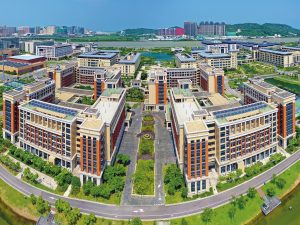
On the two sides of Alumni Avenue are residential colleges and faculty buildings that are colour-coded in orange and blue, respectively.
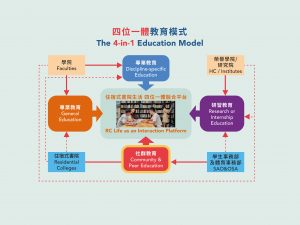
One of the features of UM’s education setup is an education model in which faculties and RCs achieve synergy by complementing each other
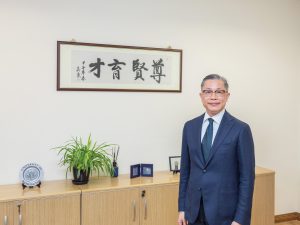
Prof Mok Kai Meng
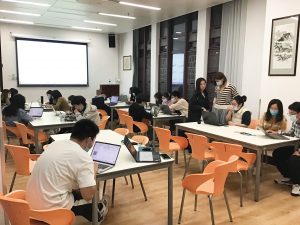
The RCs offer non-credit-bearing tutorials and extracurricular workshops as academic support for students
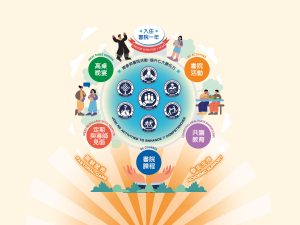
The RCs offer a variety of experiential learning programmes to enable students to develop different competencies
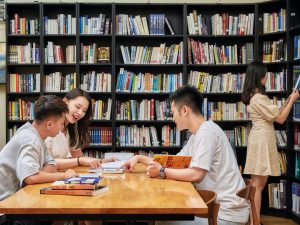
Each first-year student at UM is given two identities, one by the faculty and another by the RC
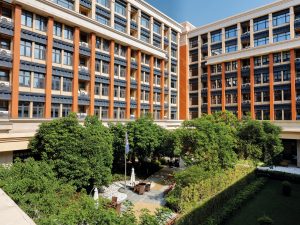
An RC atrium
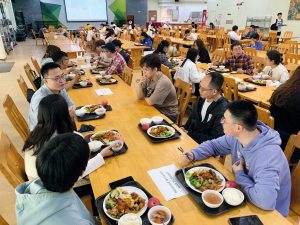
Students are encouraged to have meals with professors for mutual inspiration
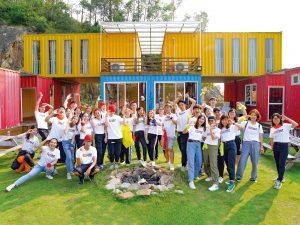
A leadership training activity for RC students
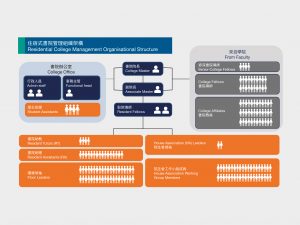
The organisational structure of the RCs
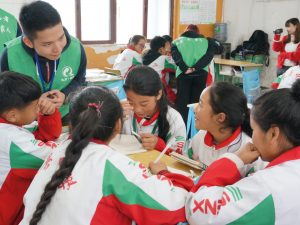
RC students engage in community services in different places to cultivate responsible citizenship
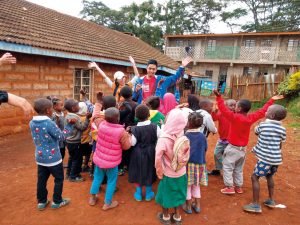
RC students engage in community services in different places to cultivate responsible citizenship
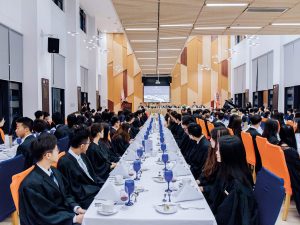
A High Table Dinner

UM introduced the Global Career Development Facilitator training in the 2022/2023 academic year to improve career planning services for students
